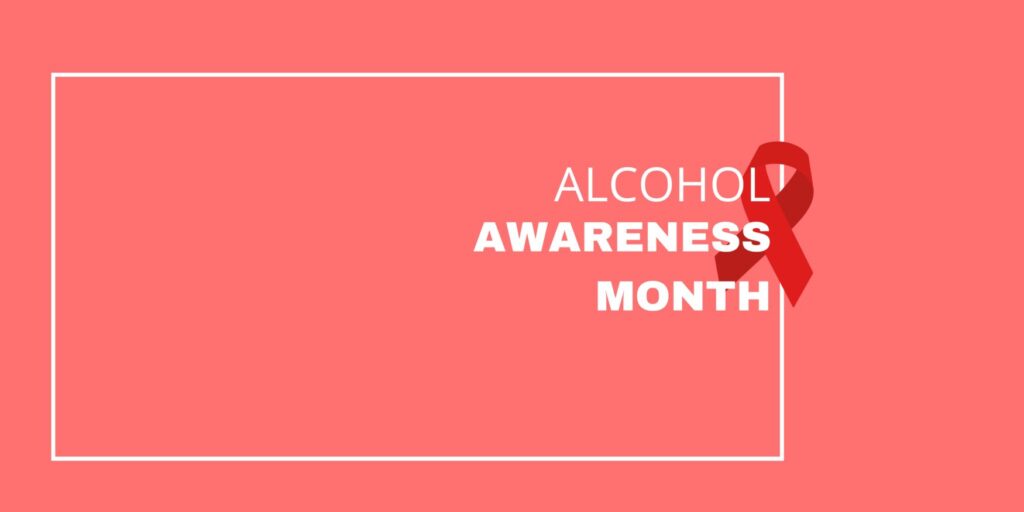April is Alcohol Awareness Month
in Local Events, Local News, Massachusetts News, National News

April is Alcohol Awareness Month
April is Alcohol Awareness Month, a time dedicated to increasing public understanding about the dangers of alcohol misuse, as well as promoting responsible drinking habits and recovery resources. Established in 1987 by the National Council on Alcoholism and Drug Dependence (NCADD), this observance aims to spark conversations that reduce stigma, encourage education, and offer support for individuals and families affected by alcohol-related challenges.
Alcohol Awareness Month reminds us of the importance of education, compassion, and community in addressing the challenges associated with alcohol misuse. Whether it’s through participating in awareness campaigns, sharing information, or supporting someone on their recovery journey, we can all play a part in creating a healthier society.
The importance of Alcohol Awareness Month
- Preventing Misuse: Alcohol is one of the most widely used substances, yet it carries significant risks when misused. Alcohol Awareness Month helps people recognize the signs of harmful behaviors, such as binge drinking or dependency, and understand how alcohol can negatively impact physical and mental health.
- Raising Awareness About Health Risks: Chronic alcohol misuse is linked to a variety of serious health conditions, including liver disease, heart problems, and increased risk of cancer. It can also exacerbate mental health disorders like anxiety and depression. This month serves as a reminder of these risks and encourages healthier lifestyle choices.
- Supporting Recovery and Families: Many individuals struggle with addiction and feel isolated due to societal stigma. Alcohol Awareness Month emphasizes that recovery is possible and offers a chance to highlight support networks, treatment options, and resources for families dealing with the effects of alcoholism.
- Encouraging Open Dialogue: By fostering open conversations about alcohol, its impact, and the societal pressures around drinking, this month contributes to breaking down barriers to seeking help. It also creates an opportunity for people to reflect on their own drinking habits.
Prevalence among adolescents in Massachusetts
Alcohol misuse among adolescents in Massachusetts remains a concern. According to recent data:
- Underage Drinking: Approximately 20% of Massachusetts youth aged 12-20 reported consuming alcohol in the past month.
- Binge Drinking: Around 10% of adolescents in this age group engaged in binge drinking, defined as consuming five or more drinks on a single occasion.
- Early Initiation: Many adolescents report trying alcohol for the first time before the age of 15, increasing their risk of developing alcohol use disorders later in life.
Reasons why adolescents partake in activities involving alcohol
Adolescents may engage in activities involving alcohol for a variety of reasons, often influenced by social, psychological, and environmental factors. Here are some common motivations:
- Peer Pressure: Adolescents often feel the need to fit in with their social groups. If their peers are drinking, they may feel compelled to join in to avoid being excluded or judged.
- Curiosity: The teenage years are a time of exploration and experimentation. Many adolescents try alcohol simply to satisfy their curiosity about its effects.
- Stress and Coping Mechanism: Some teens turn to alcohol as a way to cope with stress, anxiety, or emotional challenges, especially if they lack healthy coping strategies.
- Desire for Independence: Drinking can be seen as a way to assert independence or rebel against parental or societal rules.
- Media and Cultural Influence: Alcohol is often glamorized in movies, TV shows, and social media, which can make it appear appealing or “cool” to impressionable teens.
- Family Environment: Adolescents who grow up in environments where alcohol use is normalized or where there is a lack of supervision may be more likely to experiment with drinking.
- Accessibility: Easy access to alcohol, whether through friends, family, or fake IDs, can increase the likelihood of underage drinking.
Why prevention and education are important among adolescents
Starting the conversation early about alcohol awareness sets the stage for healthier habits and choices that can benefit not only individuals but society as a whole. Prevention and education regarding alcohol awareness among adolescents are crucial for several compelling reasons:
- Protecting Brain Development: Adolescents’ brains are still developing, especially areas responsible for decision-making, memory, and impulse control. Alcohol can interfere with this development, leading to long-term cognitive and behavioral issues. Teaching young people about these risks helps safeguard their future health.
- Reducing Risk of Dependency: Early alcohol use increases the likelihood of developing dependency or Alcohol Use Disorder later in life. By educating adolescents about the dangers of underage drinking, we can discourage early initiation and lower these risks.
- Preventing Risky Behaviors: Alcohol misuse among adolescents is often linked to risky behaviors such as impaired driving, unsafe sexual activity, and even violence. Awareness campaigns help teens understand the consequences and make safer choices.
- Building Coping Skills: Many teens turn to alcohol as a way to deal with stress or peer pressure. Prevention efforts can teach healthy coping mechanisms and provide support systems that reduce the appeal of alcohol misuse.
- Creating Safer Communities: By addressing alcohol awareness at a young age, communities can reduce alcohol-related accidents and incidents, creating safer environments for everyone.
- Empowering Decision-Making: Education provides adolescents with the knowledge they need to make informed decisions and resist peer pressure, fostering confidence and independence.
Resources:
- Massachusetts Organization for Addiction Recovery (MOAR): MOAR offers recovery services and advocacy for individuals and families. They are located at 105 Chauncy St, Boston, MA, and can be reached at (617) 423-6627.
- Adolescent Substance Use & Addiction Program (ASAP) at Boston Children’s Hospital: This program specializes in treating adolescents with substance use issues. They have locations at 2 Brookline Pl, Brookline, MA, and 300 Longwood Ave, Boston, MA. Contact them at (617) 355-2727.
- Massachusetts Behavioral Health Help Line: This helpline connects individuals to clinical help and treatment options. It’s free, confidential, and available in multiple languages. Call (833) 773-2445 or visit their website here.
